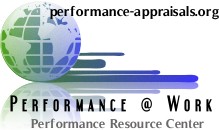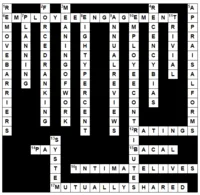Employee Discipline - The TRUE Meaning, and How To Apply Progressive Discipline To Performance Problems
Top : Performance Problems - Dealing With and Progressive Discipline
Addressing Employee Performance Problems - Using Progressive Discipline by Robert Bacal
On the list of most hated managerial activities is dealing with poor employee performance. It's never an easy issue, because few employees will embrace the criticism with a positive attitude.
Misunderstanding "Discipline"
One reason it's so difficult to address poor performance is a misunderstanding of what "discipline" means. Most people interpret the words as "punishment", and, when both manager and employee hold that perception, there's bound to be bad feelings.
However, discipline should never be about punishment, even if managerial actions end up as being perceived as negative by the employee.
The true meaning of discipline means helping someone learn, so rather than considering it as punishment, let's reconceive it as methods a manager uses to help the employee improve.
Also consider discipline as a process that encourages accountability by associating consequences to sub-par performance.
Progressive Discipline - A Method Using Least Possible Consequences
Progressive discipline involves the application of least possible consequences along with specifying specific actions the employee needs to take to improve.
It's a process that is intended to help the person succeed, and NOT to provide an excuse for employee termination.
To help you develop your understanding of how you can use the progressive discipline process in a positive way, below are some hand-picked resources on the topic.
More Resources On Progressive Discipline, and Helping Staff Improve
By Susan Heathfield - Looking for a format that's a winner when you want to help an underperforming employee succeed? The purpose of a formal Performance Improvement Plan is to help an employee succeed. This format enables you to set goals, establish measures, conduct review sessions and chart progress. Not convinced of the need for this procedure? Check out my introduction to the form. You'll be happy you did. Viewed 1369 Times )
By Robert Bacal - The first step in dealing with an employee performance problem is to diagnose the causes or root causes of the issue. Without doing that, how can you identify the right solution? Here's an explanation. Viewed 918 Times )
By Robert Bacal - You can't address employee problem performance unless you have a clear understanding of what that means. Here's a starting point. Viewed 919 Times )
By Robert Bacal - A starting point for you to learn more about progressive discipline and how to use it effectively. Viewed 818 Times )
By na - Progressive discipline benefits employers and employees in many ways. Its counseling aspect can salvage the employment relationship by notifying the employee of the need for improvement. Further, it establishes a time limit for the employee's changed behavior and identifies the consequences of noncompliance. The plan requires supervisors and managers to document disciplinary actions, justify personnel decisions, and, therefore, may reduce the employer's risk of liability for wrongful discharge or discrimination claims. Overall, a progressive disciplinary policy can promote a productive work environment and assist willing employees to become the best workers possible. Learn to make it happen. Viewed 1646 Times )
By na - Disciplinary probation is a process for addressing employee misconduct. It is a sanction imposed by the employer that allows a problem employee to remain employed subject to certain terms and conditions. It allows for a means of correction for on-the-job related behaviour problems and/or performance problems. Probation is one step away from termination and is part of a progressive disciplinary measures policy. Viewed 1652 Times )
By Robin Thomas - Involuntary terminations are an unpleasant part of any manager's job, but these eight tips can help smooth the process and reduce the stress for everyone involved. Viewed 1320 Times )
By Terence Traut - This article introduces the problem-solving model as a technique for managing performance issues that are more controversial, or that are not effectively addressed through coaching or feedback. Issues such as tardiness, being out of uniform, continual poor performance, and others are best handled by a direct, objective approach. By following the Problem Solving Dialogue Model taught in this article, you can feel confident in addressing these thorny issues with employees. Viewed 962 Times )
By Robert Bacal - Managers often attribute the cause of poor employee performance to the wrong causal factors. Here's an explanation of the most common sources or causes of poor employee performance. You'll be surprised. Viewed 1177 Times )
By Robert Bacal - It's easy to make mistakes when trying to improve the performance of an under performing employee. Here's an important pitfall to avoid. Viewed 971 Times )
By Robert Bacal - If you are a manager or supervisior, and have an employee who is performing in an unsatisfactory way, where do you start to address the problem constructively? Here's an answer. Viewed 826 Times )
By na - Eliminating employee misconduct is a challenge for the human resources professional. If the behavior continues, it can lower employee morale and decrease productivity. Many employers take an aggressive, proactive approach to solving employee performance problems by using progressive discipline. This disciplinary program gives employees specific feedback, timelines, and action plans for improvement. Further, it requires supervisors to confront employee misconduct and document the disciplinary proceedings. Satisfied employees, reduced liability, and a more productive workplace are only a few of the benefits of a progressive discipline plan. Viewed 1960 Times )
By Gregory Batts - For the most part, firing someone is not easy. If you find yourself in a position where you have to terminate someone's employment, take a deep breath and read (or re-read) this article Viewed 1437 Times )
By Terrance Traut - This article introduces the problem-solving model as a technique for managing performance issues that are more controversial, or that are not effectively addressed through coaching or feedback. Viewed 1121 Times )
|
Library Home Page |
Pages Updated On:
6-Sep-2016
-
15:26:57
We can help you with the various parts of a performance management system with our miniguides on each component.
Instantly downloadable and built to save you time.
There's even help for employees on how to navigate the process.


